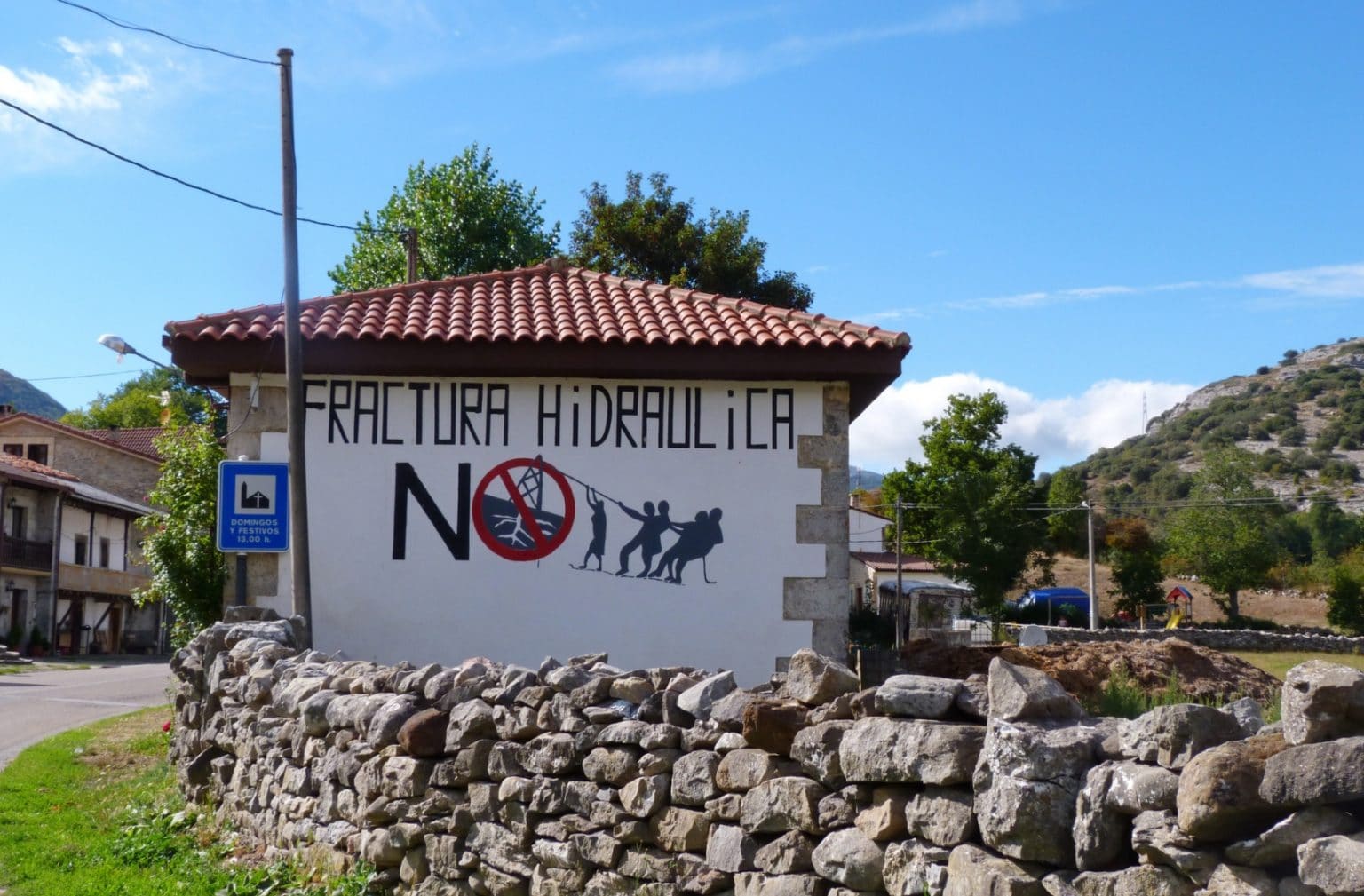The UK isn’t the only country in Europe that’s gone full force for fracking. In Spain, like Britain, the government has consistently worked to incentivise the industry. But with an anti-fracking resolution agreed in the Spanish parliament this week, Samuel Martín-Sosa Rodríguez, international coordinator at environmental NGO Ecologistas en Accion, asks: could things be changing?
Spain’s conservative Popular party government was urged to ban fracking and cancel every existing licence, including those for exploratory drilling, during a non-binding vote this week.
During the first official meeting of the Parliament’s Industry Committee on 29 March the anti-fracking resolution was approved by a majority of the political parties.
Like the UK, Spain has been a strong and open supporter of fracking in Europe. That’s why this resolution is of such great political significance – it signals a potential trend-change on the issue for the country.
Political Uncertainty
Of course, it is not clear just how much momentum this non-binding initiative has within government given the undetermined political future of the country – the interim government is prevented from taking any important political action following last December’s election where the two main parties, the Socialists and the Popular party, lost heavily.
An agreement for a new government composition has yet to be reached and given the difficult balances of power and allegiances being struck between the parties the country may be headed back to the polls in June.
But amidst all the political turmoil, this fracking vote appears to show a growing shift in thinking when it comes to the issue.
After the Popular party lost its absolute majority during December’s election, it stood almost alone during the Committee meeting this week when it voted against the fracking resolution.
Meanwhile, the Right-wing emerging party, Ciudadanos, abstained from the vote as it claims to be in favour of a moratorium, not a prohibition, on fracking. All other parties voted in favour of the ban.
Fracking Support
Until now, Spain has been a strong advocate for fracking. The government has consistently asserted its commitment to exploring the country’s unconventional resources, with public statements based on unbelievably optimistic reports claiming a gas supply potential equal to 70 years of consumption.
Since 2006, the application and granting of licenses have increased almost four-fold. And Industry minister José Manuel Soria declared in 2013 that the only threat of fracking “would be not to follow the path taken by the USA”.
The government has combined this political enthusiasm with legislative changes, introducing amendments to the Hydrocarbons Law intended to ease investments and overcome social resistance to the controversial drilling technique.
These changes included lower tax rates for companies, the obligation to divert part of the revenues to regional and local governments, and mandatory payments to land owners. But above all, the amended law established that decisions on fracking were nationally owned.
This is not a minor issue given that early social resistance in Spain had delivered institutional opposition to fracking at various local and regional levels in the form of more than 400 self-declared frack-free municipalities, or at a higher level, in the form of regional governments (up to six) having banned or established a moratorium on the activity.
But with the change in law, the Constitutional Court is allowed to reverse these self-declared bans on fracking.
While there has yet to be a single well drilled in Spain, there are 12 BNK Petroleum-owned exploratory licenses that are nearing that stage. These permits, located in Northern Burgos, are pending a Ministerial decision regarding their Environmental Impact Assessments. If positive, BNK could start drilling this year.
But everything suggests these decisions are still going to take a while as nobody is willing to get involved with such a touchy issue given the current political uncertainty.
And interestingly, in recent months several companies have abandoned their fracking plans. Could it be that industry and government are feeling the unfavourable breeze of change? Only time will tell.
Photo: Jose Luis RDS via Flickr
Subscribe to our newsletter
Stay up to date with DeSmog news and alerts






